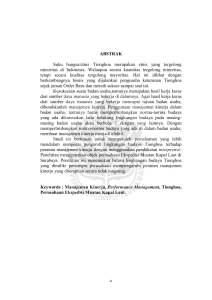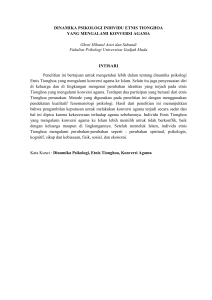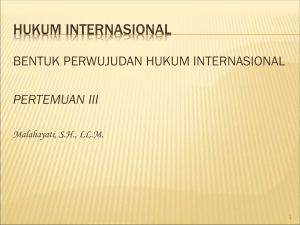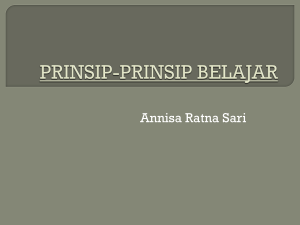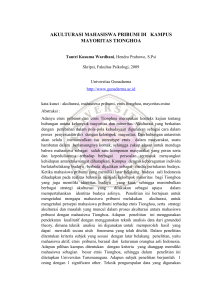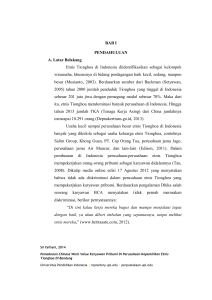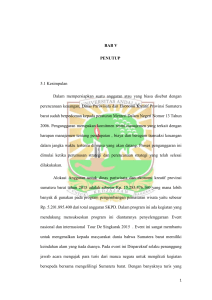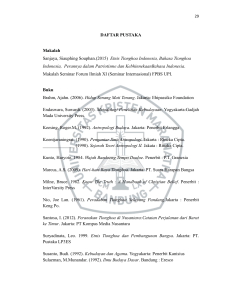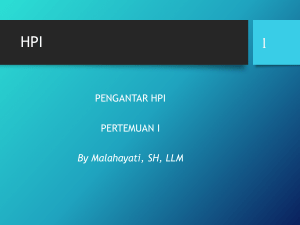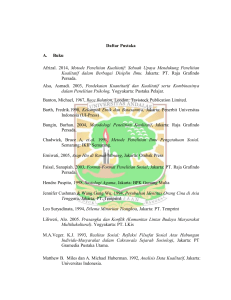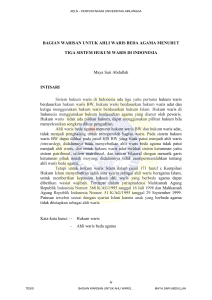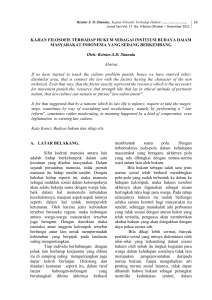xiii Abstrak Politik hukum pemerintah Hindia Belanda, yang
advertisement
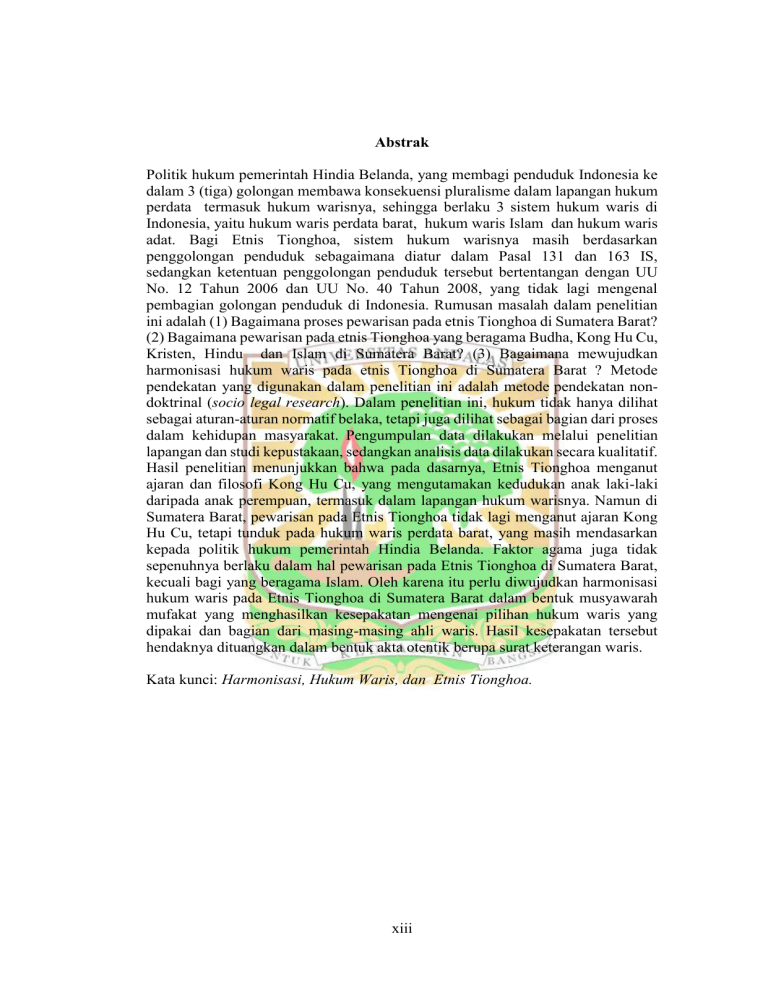
Abstrak Politik hukum pemerintah Hindia Belanda, yang membagi penduduk Indonesia ke dalam 3 (tiga) golongan membawa konsekuensi pluralisme dalam lapangan hukum perdata termasuk hukum warisnya, sehingga berlaku 3 sistem hukum waris di Indonesia, yaitu hukum waris perdata barat, hukum waris Islam dan hukum waris adat. Bagi Etnis Tionghoa, sistem hukum warisnya masih berdasarkan penggolongan penduduk sebagaimana diatur dalam Pasal 131 dan 163 IS, sedangkan ketentuan penggolongan penduduk tersebut bertentangan dengan UU No. 12 Tahun 2006 dan UU No. 40 Tahun 2008, yang tidak lagi mengenal pembagian golongan penduduk di Indonesia. Rumusan masalah dalam penelitian ini adalah (1) Bagaimana proses pewarisan pada etnis Tionghoa di Sumatera Barat? (2) Bagaimana pewarisan pada etnis Tionghoa yang beragama Budha, Kong Hu Cu, Kristen, Hindu dan Islam di Sumatera Barat? (3) Bagaimana mewujudkan harmonisasi hukum waris pada etnis Tionghoa di Sumatera Barat ? Metode pendekatan yang digunakan dalam penelitian ini adalah metode pendekatan nondoktrinal (socio legal research). Dalam penelitian ini, hukum tidak hanya dilihat sebagai aturan-aturan normatif belaka, tetapi juga dilihat sebagai bagian dari proses dalam kehidupan masyarakat. Pengumpulan data dilakukan melalui penelitian lapangan dan studi kepustakaan, sedangkan analisis data dilakukan secara kualitatif. Hasil penelitian menunjukkan bahwa pada dasarnya, Etnis Tionghoa menganut ajaran dan filosofi Kong Hu Cu, yang mengutamakan kedudukan anak laki-laki daripada anak perempuan, termasuk dalam lapangan hukum warisnya. Namun di Sumatera Barat, pewarisan pada Etnis Tionghoa tidak lagi menganut ajaran Kong Hu Cu, tetapi tunduk pada hukum waris perdata barat, yang masih mendasarkan kepada politik hukum pemerintah Hindia Belanda. Faktor agama juga tidak sepenuhnya berlaku dalam hal pewarisan pada Etnis Tionghoa di Sumatera Barat, kecuali bagi yang beragama Islam. Oleh karena itu perlu diwujudkan harmonisasi hukum waris pada Etnis Tionghoa di Sumatera Barat dalam bentuk musyawarah mufakat yang menghasilkan kesepakatan mengenai pilihan hukum waris yang dipakai dan bagian dari masing-masing ahli waris. Hasil kesepakatan tersebut hendaknya dituangkan dalam bentuk akta otentik berupa surat keterangan waris. Kata kunci: Harmonisasi, Hukum Waris, dan Etnis Tionghoa. xiii Abstract The Dutch Indies government politics of law, in which divided the Indonesian society into three groups has impacted in form of pluralism consequence within the civil law field including its law of inheritance, that applied three types of inheritance law in Indonesia, which are The Western Civil Law of Inheritance, The Islamic Law of Inheritance and The Custom Law of Inheritance. For those whom are the Chinese ethnics, their law of inherintance system is still based on under the community classification regulated in the Article 131 and Article 163 of Dutch Indies gazetted, where in the meantime this classification is conflicting to the 2006, No. 12 Act of Law and to the 2008, No. 40 Act of Law, as both law do not recognize the society classification anymore. The Problem Formulation taken in this research are (1) How does the Chinese ethnics’ Inheritance process apply in West Sumatra? (2) How does the Chinese ethnics’ Inheritancy applied upon the multi-religion of Buddish, Confucius, Christian, Hindu and the Moslem Chinese Ethnic in the West Sumatra? (3) How could it creates a harmonized Chinese ethnics’ law of inheritance in the West Sumatra? The methodology used in this research is the non-doctrinal approach (socio legal research). In this research, law is not merely viewed as common normative values instead, it is considered as part of the life process in the society. Datas collecting were executed through field study and literature study, while the data analysis completed qualitatively. The research resulting in conclusion, that basically the Chinese ethnics embrace the values and philosophy of Cofucius which primarily patriarcthic instead of matriarcthic, including in its inheritance field of law. However, in West Sumatra, the law of inheritance within the Chinese ethnics has stopped embracing the Confucius values, it bows to the system of the Western Civil Law of Inheritance, that tends based its values into the Dutch Indies government politics of law. Religion factor is also not fully applied to the Chinese ethnics inheritance system in West Sumatra, except to those whom are moslems. Therefore, a harmonized Chinese’ ethnics inheritance law in West Sumatra is necessary to be embodiment in a form of mutual discussion for agreement to create a uniformity regarding choiches of inheritance law and the share inherited by each of heir. The result of the agreement ought to be resulting as an authentic deed in the form of certificate of inheritance. Key words: Harmonized, Law of Inheritance, Chinese ethnics. xiv
